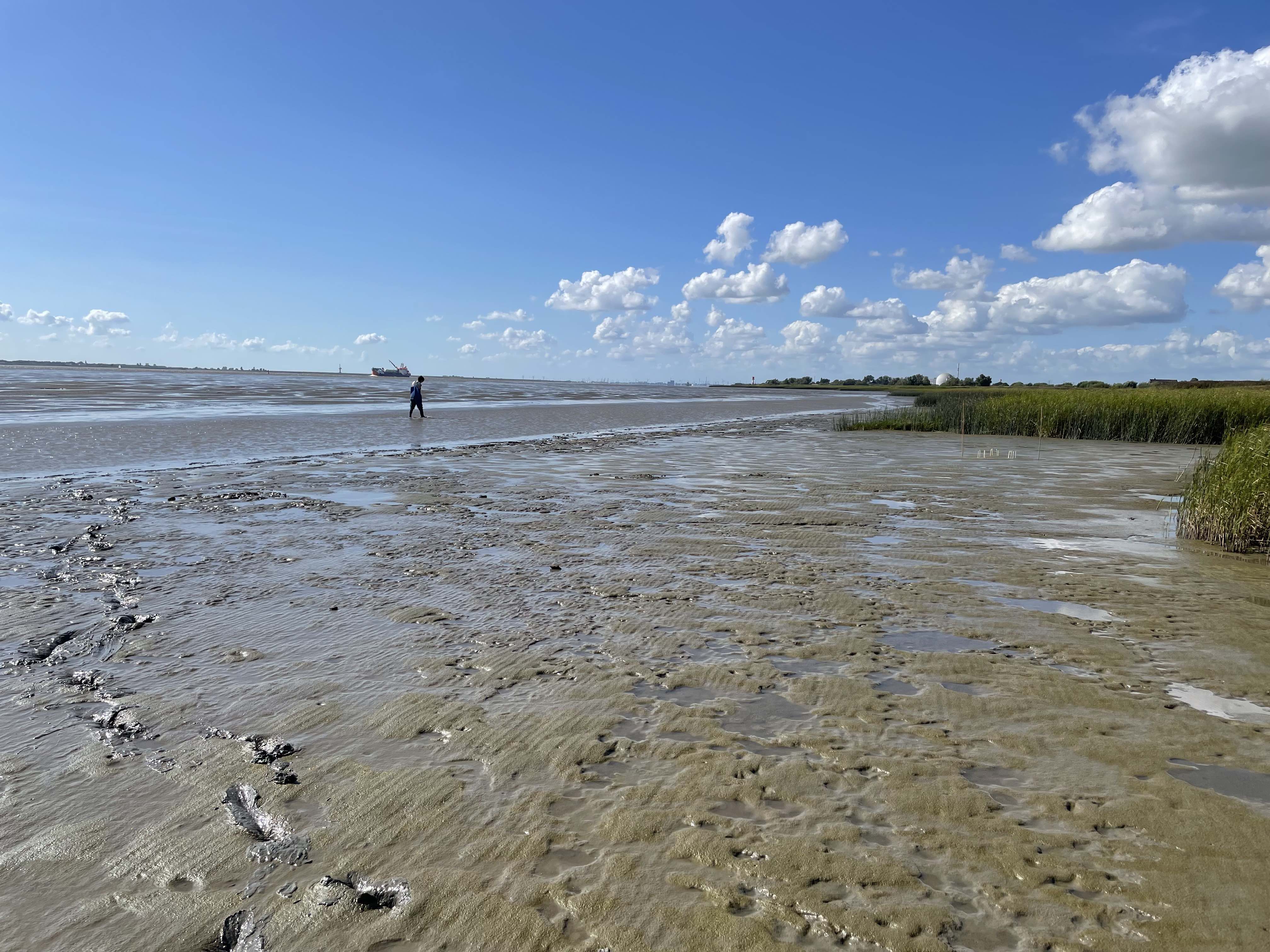
One of our marsh field sites within the Elbe estuary
My research focuses on the critical role that soils play in our environment.
Biogeochemical cycles in soil control the quality of water and air, the release of greenhouse gases, and the growth of organisms and plants.
Since 2025, I focus on forest soils and how they are affected by climate and land use change.
Using molecular, bench scale, and field techniques, I investigate processes at the mechanistic level and connect them to large scale phenomena of global relevance.
Soils can contain naturally high levels of trace elements such as nickel (Ni), chromium (Cr), arsenic (As), and antimony (Sb). In this project, we investigate how mobile these elements are in the face of climate change and the consequences of this mobility on ecosystem functioning.
In an exciting project funded by the Ministry of Science, Research and Arts of Baden Württemberg, we are looking at carbon cycling in coastal wetlands along the north coast of Germany (Wadden Sea). Specifically, we are looking at how iron and sulfur control the release of the greenhouse gases CO2 and CH4 under present climate conditions and how that may change due to elevated temperatures and sea level rise.
Check out our video about this project:

One of our marsh field sites within the Elbe estuary
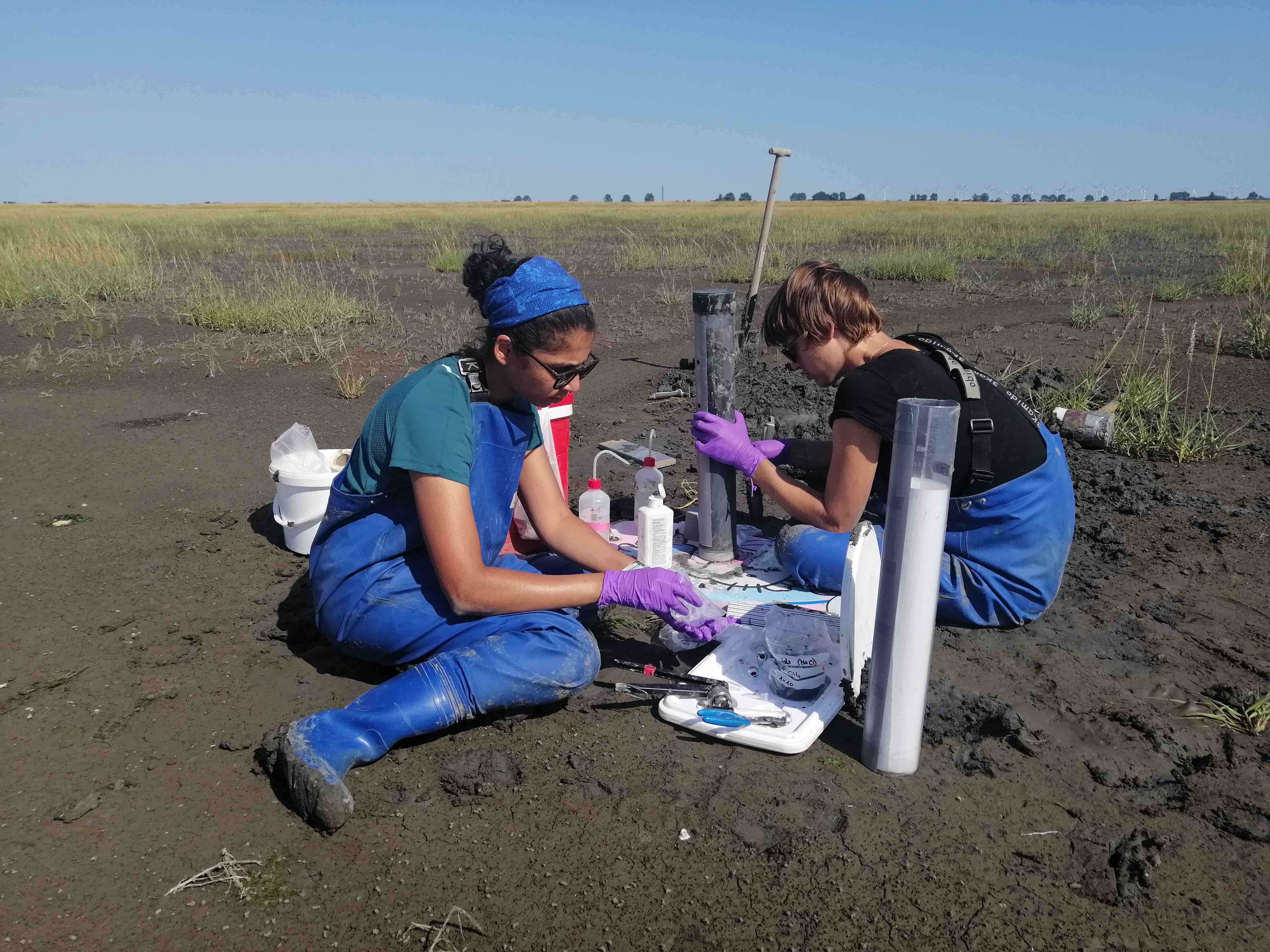
Taking porewater from a sediment core in the low marsh ecosystem at the coast
In a project funded by the Chinese Scholarship Council, we investigate how iron (oxyhydr)oxides along the size continuum interact with trace elements under reducing and oxidizing conditions.
We are investigating how the cycles of iron and carbon are coupled along a permafrost thaw gradients at Stordalen Mire, Abisko, Sweden and what this coupling means for the release of greenhouse gases.
See some of the work we're doing in the video below:
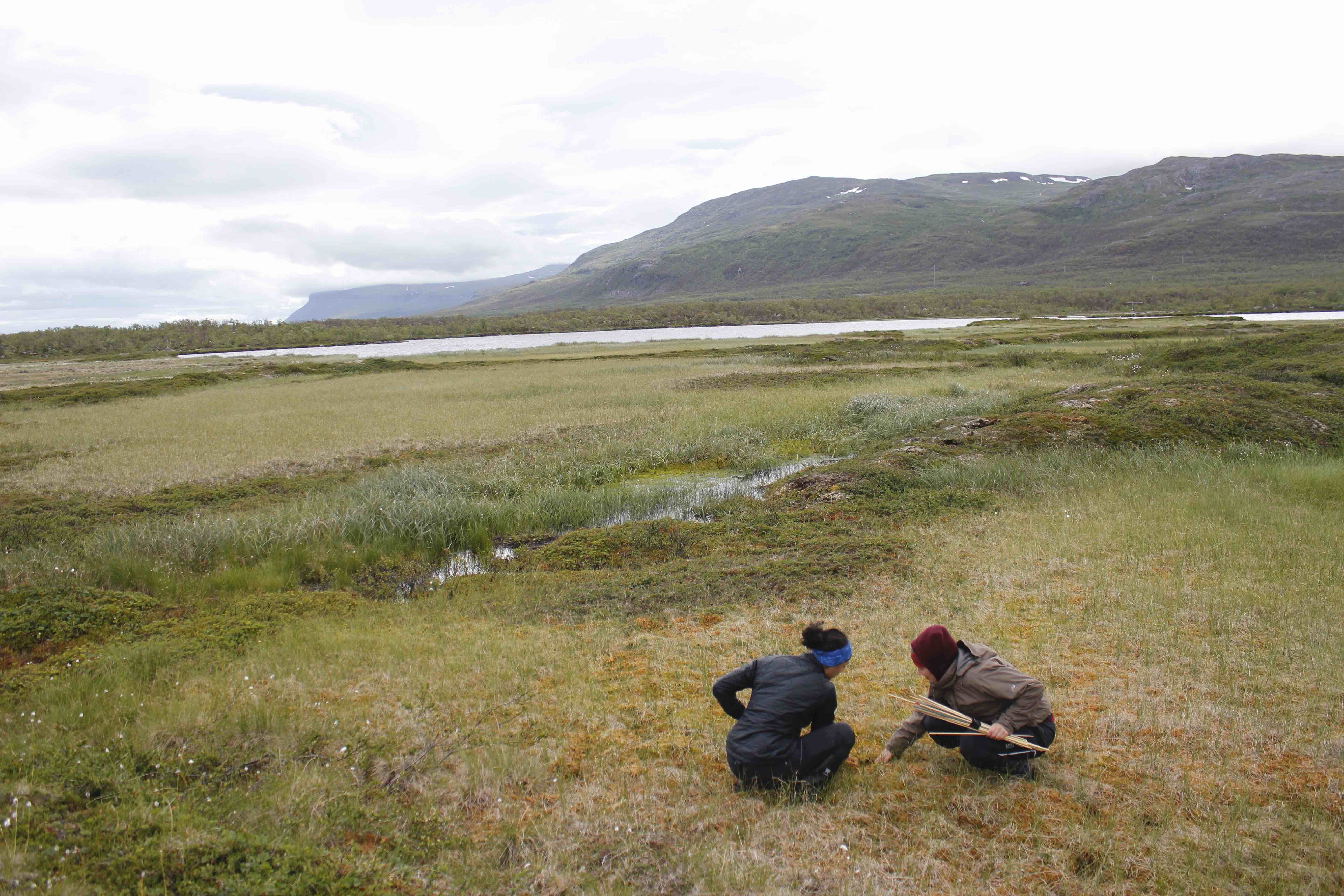
Sampling in the partially thawed permafrost soil (bogs)
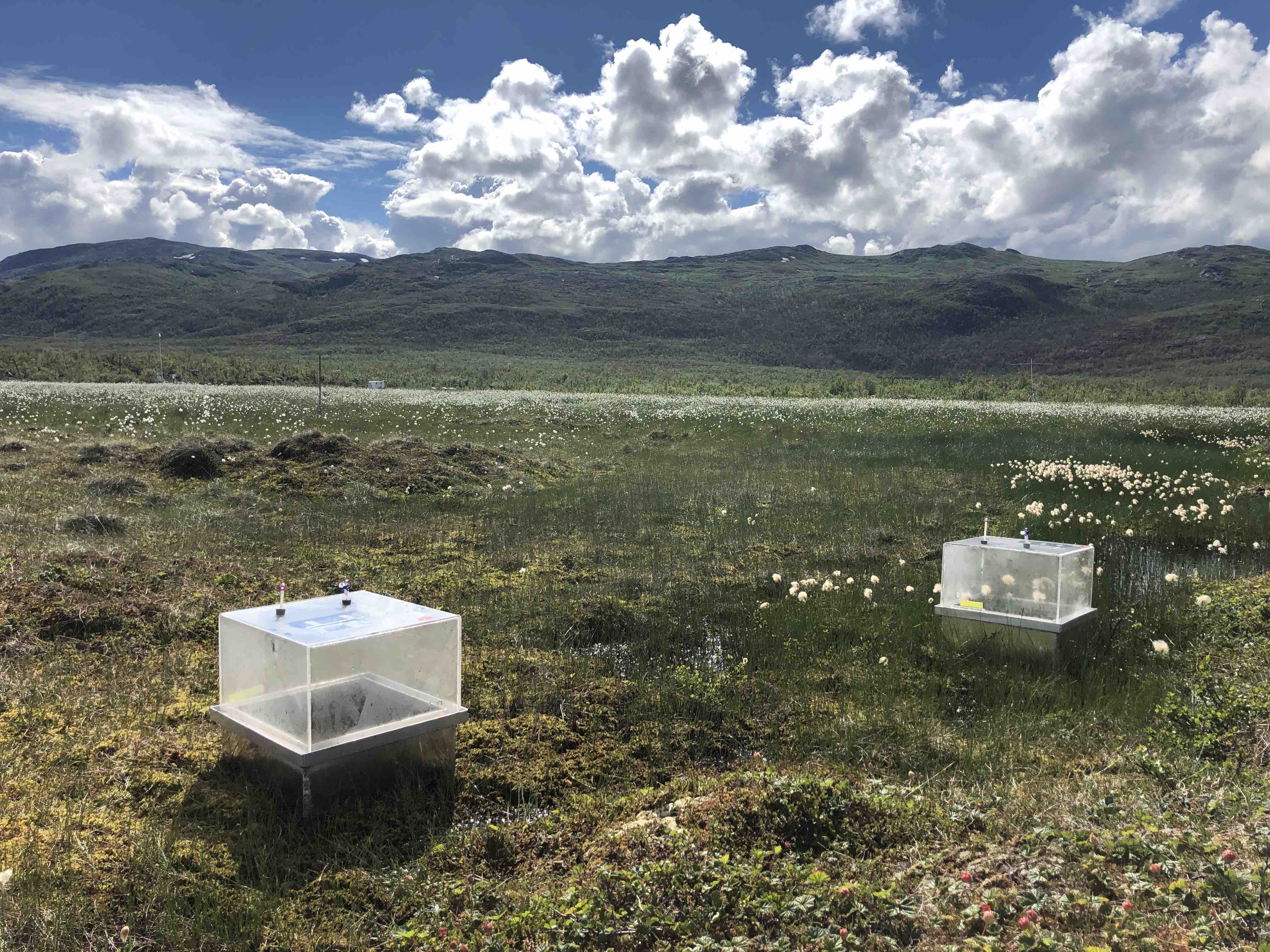
Greenhouse gas measurements in thawing soils
We investigate sorption and redox processes at the interface of iron (Fe(II) and Fe(III)) and particulate organic matter (POM) at the bulk and molecular scale.
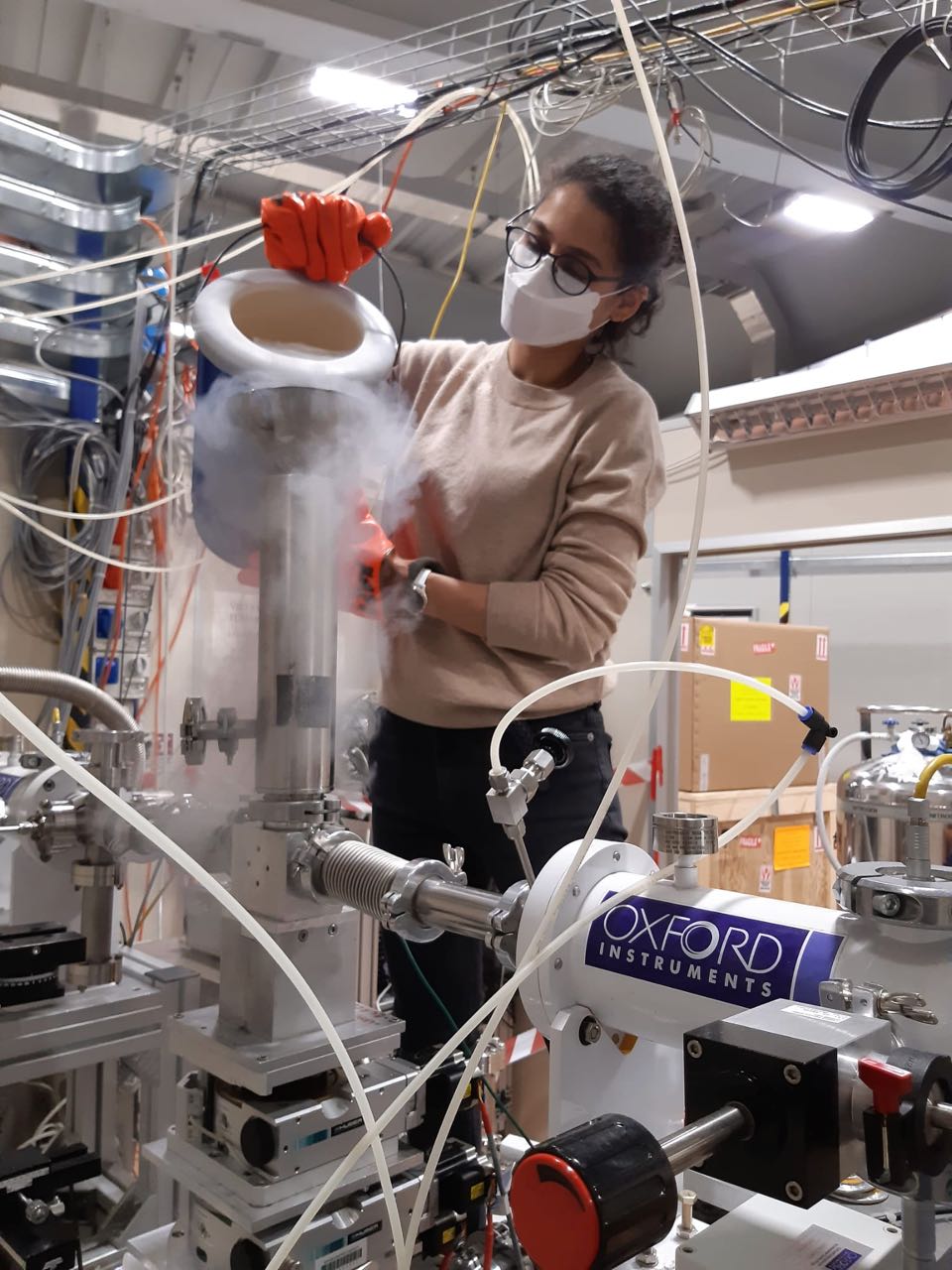
Working at the synchrotron facility in Trieste, Italy, where we analyze Fe coordination environments using X-ray absorption spectroscopy
I’m also involved in other projects looking at iron-nitrogen-arsenic cycling in fertilized paddy soils and the role of iron metabolizing microorganisms in Banded Iron Formations (BIFs).
I teach courses for Bachelors and Masters students in the Department of Environmental Systems Sciences at ETH Zürich and in the past at the University of Tübingen:
I'm also involved in the supervision of several Bachelor and Master theses. If you're interested in doing a thesis in soil biogeochemistry, feel free to send me an email.
| Position | Institution | |
|---|---|---|
| Since 2025 | Tenure-track Research Scientist | Swiss Federal Institute for Forest, Snow and Landscape Research WSL, Birmensdorf, Switzerland |
| 2020-2024 | Junior Research Group Leader in Geomicrobiology | University of Tübingen, Germany |
| 2018-2020 | ETH Postdoctoral Research Fellow in Environmental Chemistry | Swiss Federal Institute of Technology (ETH) Zürich, Switzerland |
| 2015-2018 | Ph.D. in Environmental Engineering | Pennsylvania State University, USA |
| 2013-2015 | M.S. in Environmental Engineering | Pennsylvania State University, USA |
| 2009-2013 | B. Tech. in Chemical Engineering | University of Pune, India |
Feel free to contact me for possible collaborations or projects.